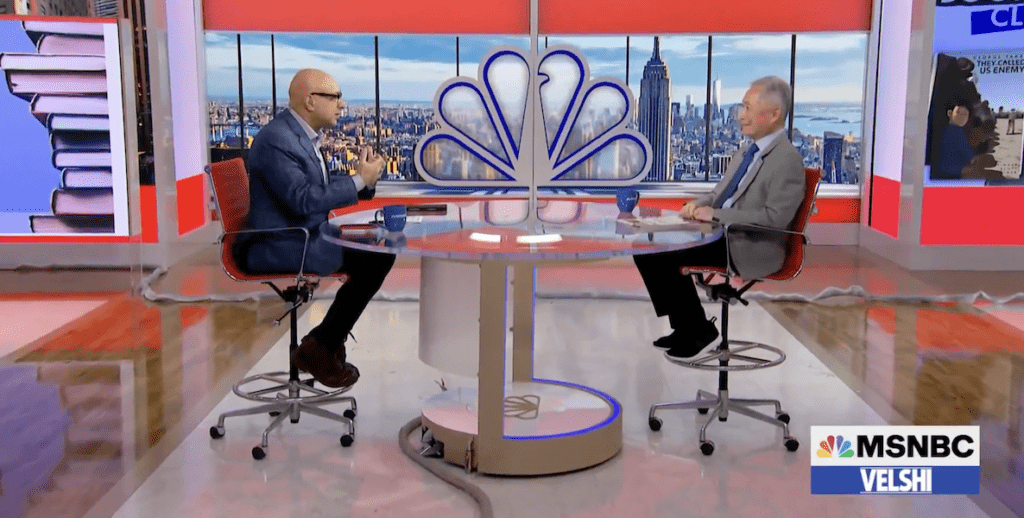Author, activist and Twitter dominator George Takei speaks with Ali Velshi about his historic graphic novel, They Called Us Enemy. Takei was a child when Japan’s attack on Pearl Harbor prompted President Roosevelt to establish internment camps to imprison Americans of Japanese descent.
“I was too young to understand it,” Takei tells Velshi. “Most of it was terrorizing and confusing.”
As a teenager, once his family was out of the camps, the future Star Trek star and his father would discuss their internment. “I had a lot of after-dinner conversations with my father. What an exceptional Japanese American he was,” says Takei.
“He shared with me his anger, his rage, and his sense of impotence,” he recalls, “He wanted his children to know the larger picture. He said, ‘We are living in a democracy. The ideas of democracy are noble ideas: equal justice, due process.'” These ideas went by the wayside when the president famous for telling Americans we had “nothing to fear but fear itself” became fearful for the West Coast of the U.S. and ordered the imprisonment of more than 125,000 Americans of Japanese descent.
Another book, banned
Takei is clear about many things. One is: These were American internment camps, not Japanese. The U.S. government ordered the camps; U.S. soldiers guarded them; Americans lived inside them. The story of these internment camps is U.S. history — and deserves a place in American history books.
Much like Nikole Hannah-Jones, author of The 1619 Project, Takei grew up searching for information about the U.S.’s internment of Japanese Americans on library shelves — and never finding it. So, he created his own. Today, his book, They Called Us Enemy, has, like Hannah-Jones’ and so many others’, experienced banning — right here in Pennsylvania. Central York School District has made a point to ban Takei’s work from its libraries.
Listen to Ali’s interview with George Takei:
Watch Velshi and Takei:
Velshi on banned books on MSNBC:

